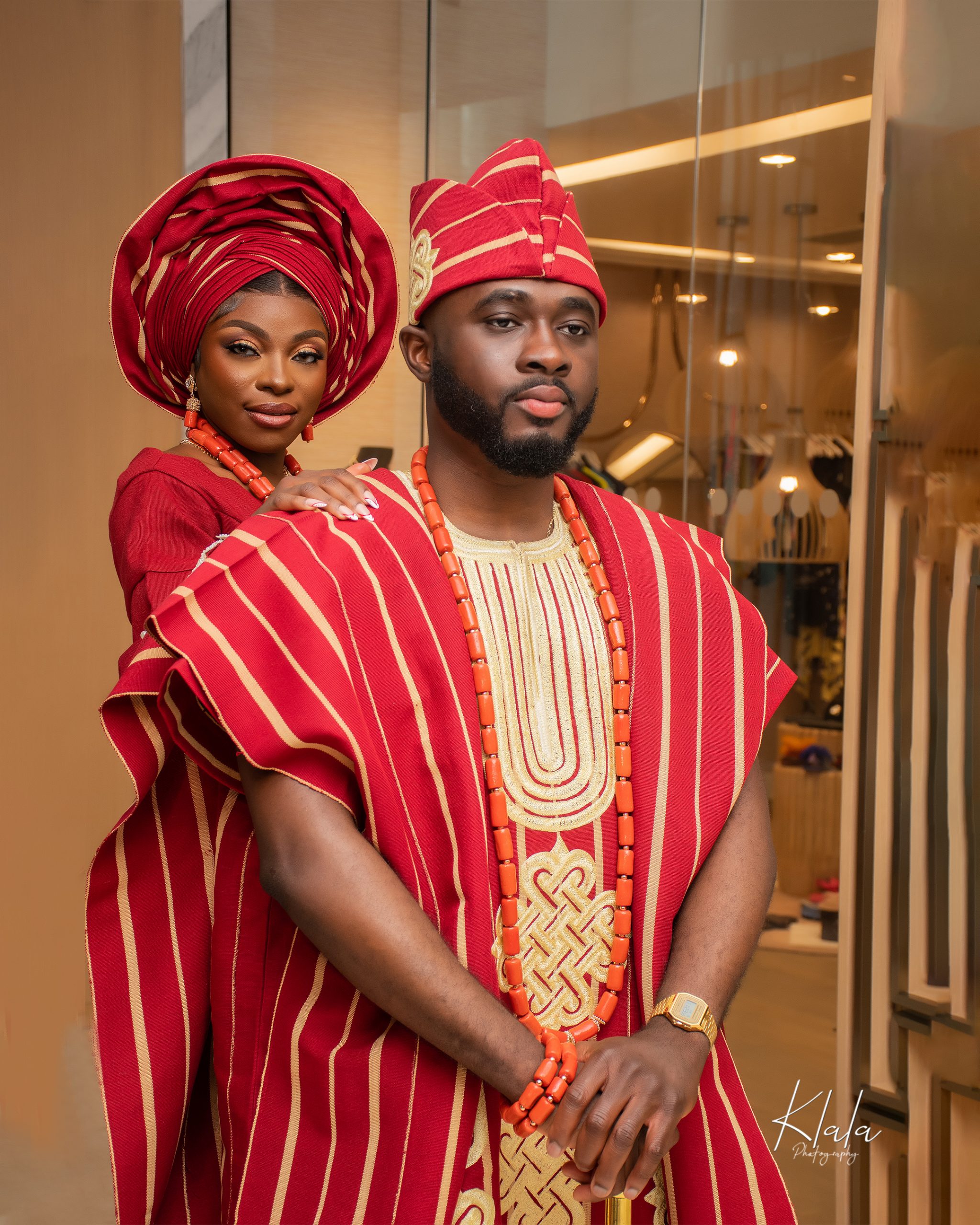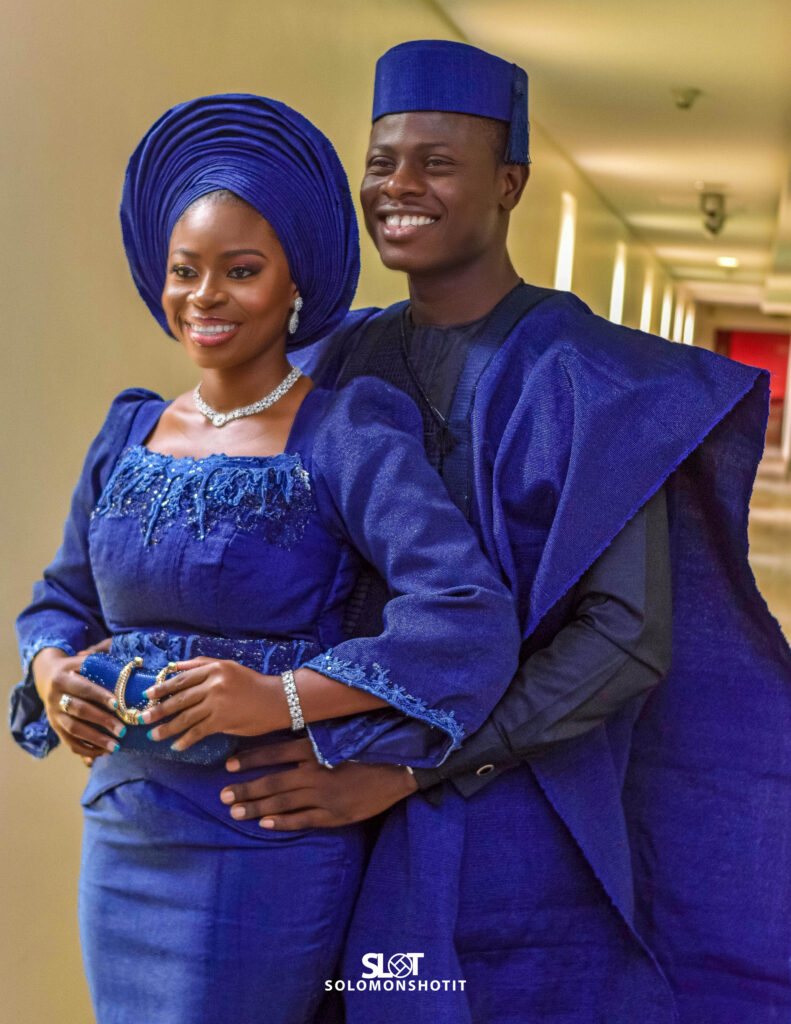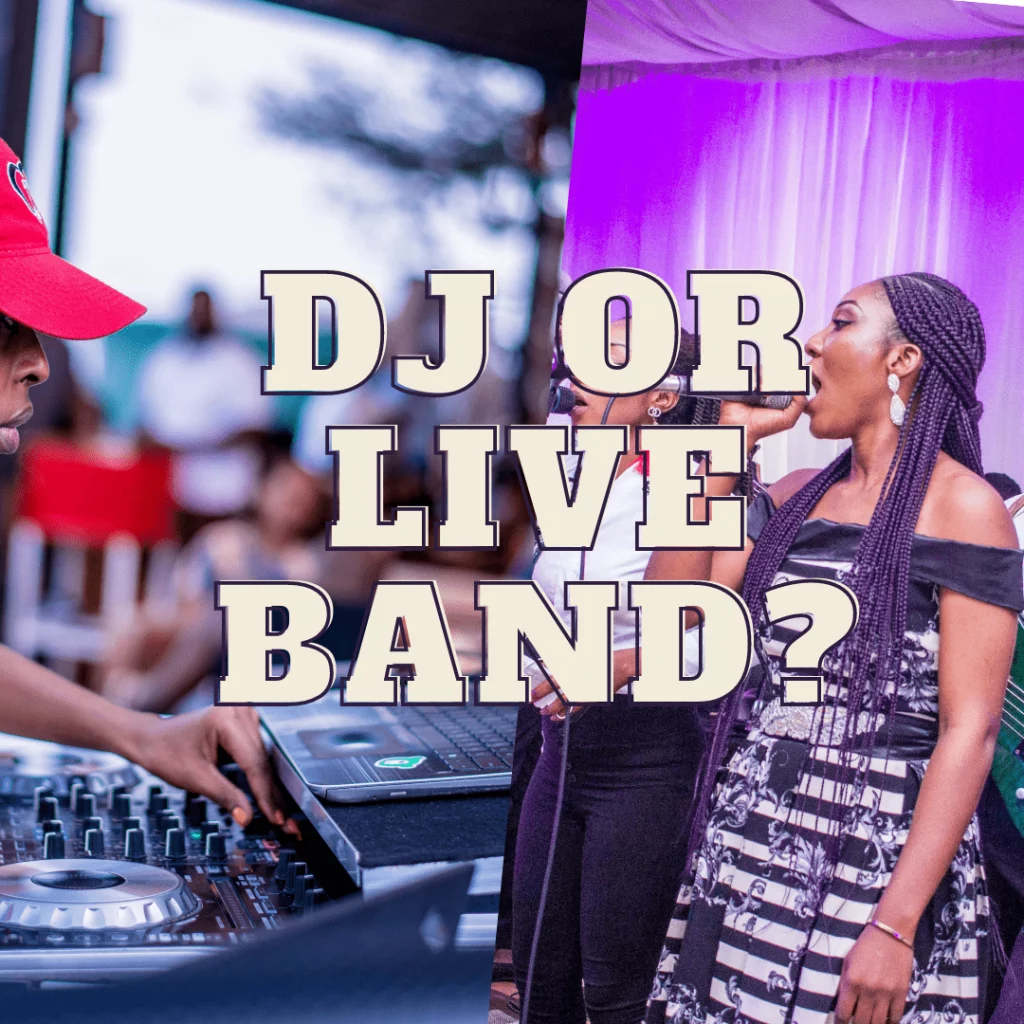In the vibrant complex diversity of Nigerian culture, weddings stand out as a grand celebration and meaningful rite that reflect the country’s vast ethnic and cultural landscape.
Nigerian wedding traditions unveils a celebration deeply rooted in cultural heritage and vibrant customs. Each ethnic group have unique customs, ceremonies, attires, food and music to celebrate the occasion.
Join us as we embark on a captivating journey to uncover the layers of significance and symbolism that accompanies the celebration of love.
Let’s take a dive into how the Igbo, Hausa and Yoruba traditional wedding is conducted.
IGBO WEDDINGS
When a man intends to marry a woman, they first visit the bride’s family with his father and other male relatives which is called ‘IKUAKA‘ or the “Knocking”. They come bearing gifts such as kola nuts and hot drinks for goodwill. The Father of the groom or any older male relative (in cases when the father of the groom is late) declares the intentions of their son to marry the woman.
The next stage is known as the ‘UMUNNA’, this involves investigations carried out by the bride’s people to decide if the groom- to- be is good enough to take very good care of their daughter and their future children. They also to investigate other things from the groom’s’ family. After this is done, the groom is then invited again to meet with the bride’s extended family
After this stage, the payment of the dowry or bride price which is called ‘IME EGO’ takes place, followed by the IGBA NKWU or ‘’wine carrying”. During this activity, the bride must search for her husband-to-be who is hiding amongst a crowd of men as she joyfully dances while looking out for her husband-to-be in the room to give him a cup of wine. After she has found him, the man must drink the wine to denote that he is indeed her groom. Then they are both declared married, music is played and they both dance alongside with their family members.
HAUSA WEDDINGS
Hausa wedding traditions start with the man going with his family members to the bride’s house to declare his intentions. This stage is known as ‘NA GANI INA SO‘. The next stage is the payment of the bride price/ dowry which is known as ‘SADAKI‘. A lower bride price is said to result in greater blessings for the couple. This is followed by the ‘FATIHAH’, which is the actual wedding day where representatives from both families exchange vows before the religious priest.
After this stage, the bride enjoys time with her female friends adorning their hands with henna and her friends also paint theirs. Then the bride is released to the groom who accompanies her to their matrimonial home and this process is called ‘KAI AMARIYA’.
YORUBA WEDDINGS
Yoruba traditional weddings also known as ‘The engagement ceremony’ is usually hosted by two traditional MCs which is known as the ‘Alaga Iduro’ (standing chairman) and ‘Alaga Ijoko’ (sitting chairman)’ alongside the talking drummers. The Alaga Iduro is the one representing the groom’s family, declaring the intentions of the groom to ask for the hand of their daughter in marriage by handling a proposal letter to the Alaga Ijoko who is the representative of the bride’s family. This letter is read by a younger female representative of the family, it could either be the bride sister or cousin which is followed by an acceptance letter given to the groom’s family.
The next stage is called the Idobale( prostration), the groom dances in with his friends to prostrate to the bride’s family three times. The first two prostrations is for his new in-laws while the last one is for his own family, after prayers he gets seated waiting for his bride.
The veiled bride dances in with her friends in Aso-ebi, she kneels before her in-laws and parents who prays for her before her veil is removed. She then dances to go and meet her husband who is seated. She proceeds to wear a cap for her husband to signify an accepted marriage proposal.
The groom’s family comes with the Eru iyawo (engagement gifts), the bride is asked to pick up something from it which is either a Bible or Quran and this serves as a blessing to their marriage and it usually comes along with the engagement rings. After the exchange of rings, cutting of the cake comes next followed by dance and photographs with both families.
However, this isn’t all for the Nigerian Traditions in wedding. There are still other common traditions we have, which are:
Introduction/ Proposal Ceremony: The bride officially introduces the groom and his family to her family. They come bearing gifts like kola nut, wine and other symbolic items as goodwill to the bride’s family. Elders of both families actively play significant roles in the process.
Religious Ceremony: This involves a church/ Islamic ceremony. For Christian weddings, it includes a church ceremony where vows and rings are exchanged. Muslim weddings also includes ring exchange and the signing of marriage certificate known as The Nikkah followed by a wedding feast.
In most cases, the couples tie the knot legally also in the marriage registry court having few persons from both families as witnesses. They are given a certificate of marriage.

Wedding Attires/ Aso ebi: The bride and groom often wear cultural outfits that reflect their cultural heritage. During the religious ceremony the groom wears a suit while the bride wears a wedding gown. The colors and styles of the attire or gele chosen varies from person to person.
Feasting and Celebration: Most Nigerian weddings are known for their large guest size, lavish feast and celebrations. A typical wedding can have between 50-3,000 guests. Guests are generally treated to a variety of Nigerian meals, snacks and intercontinental delicacies.
After, all traditional ceremony has been done the next is reception which is majorly for dance dance and entertainments.
Spraying of Money: This simply symbolizes well-wishing, prosperity and support for the newly wedded couples. It is a common tradition in Nigerian weddings and it is mostly done as during dances.
Wedding Favors: Another important tradition in Nigerian weddings, is the sharing of souvenirs to the guest which serves as a form of appreciation for attending the wedding.
After party: This is done after the reception has ended, it is mostly for the younger guest where they have fun with the couples till whenever time they want to end the party.
In the past, each aspect of the wedding is done on different days but in our time, people are flexible with how the wedding ceremony is conducted.
Remember, at Eventigo this is our area of specialty. Send your event brief to us today!



